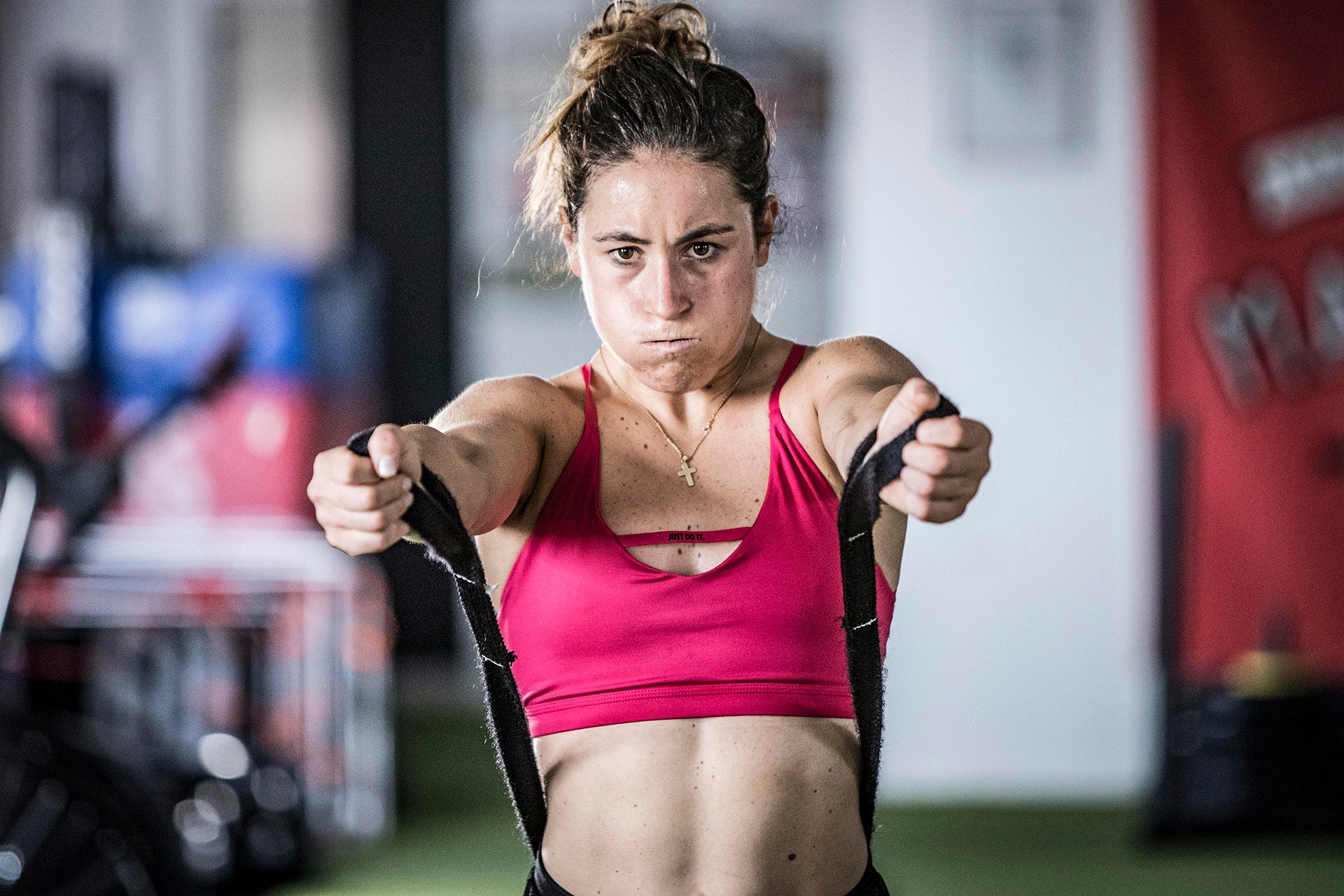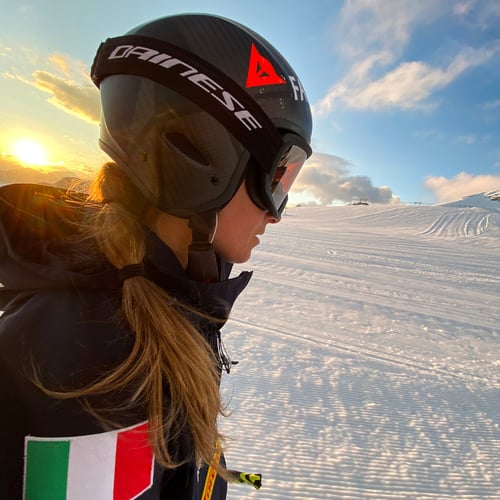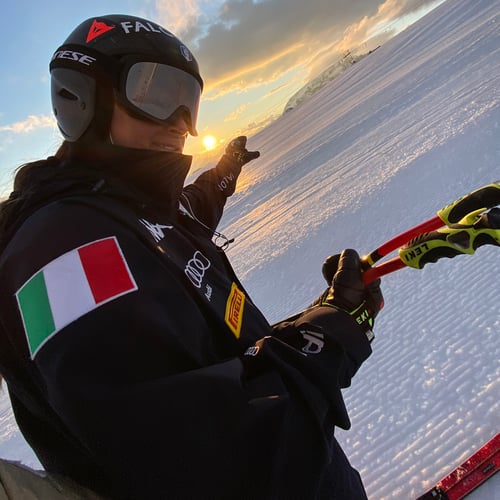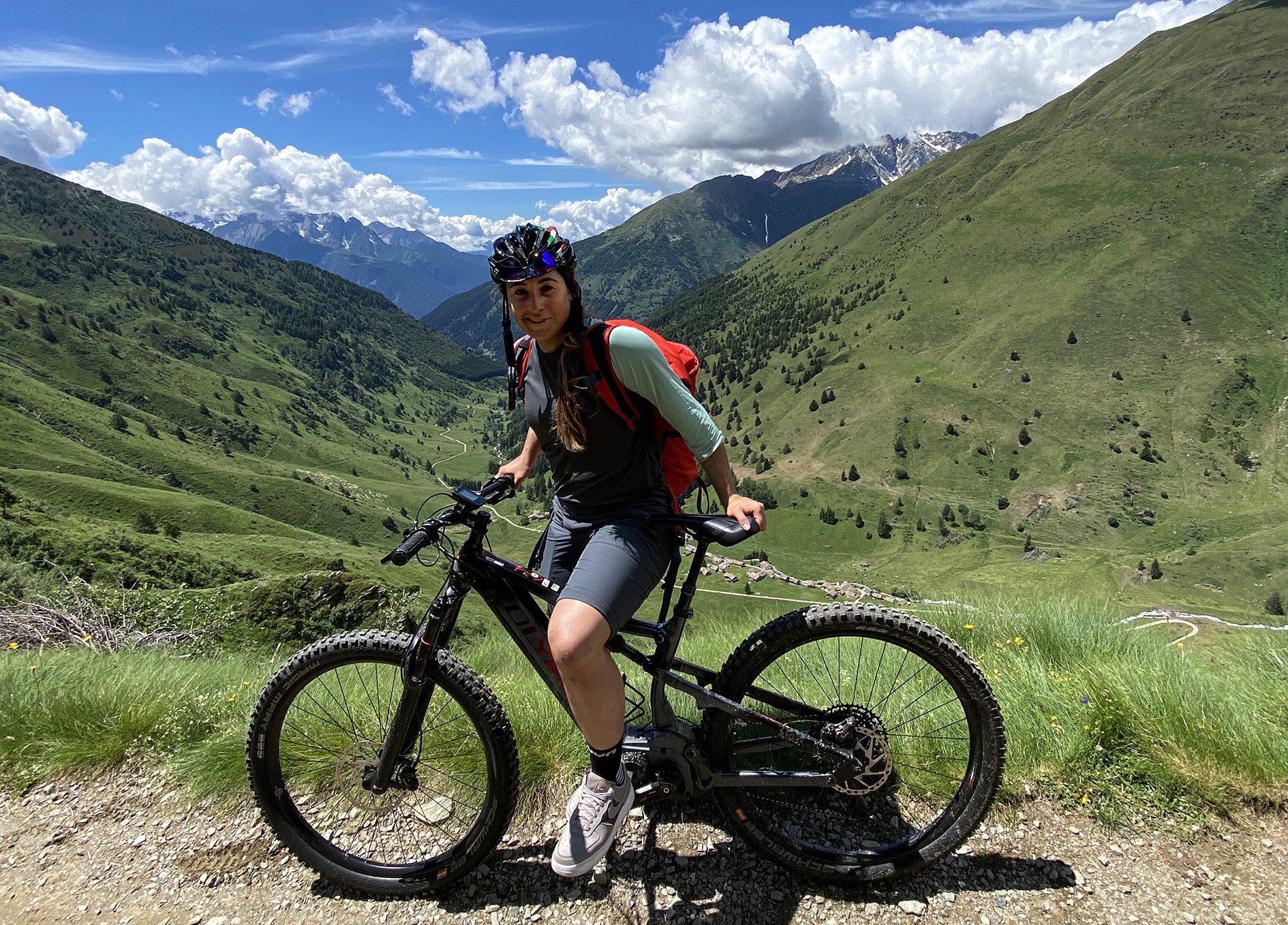Born in 1992, Sofia Goggia is a World Cup athlete and Olympic ski champion. To date, she has scored seven Cup wins and took the downhill gold medal at the 2018 PyeongChang Olympics. She also holds two world championship medals, a bronze scored in the giant slalom in St. Moritz and a super-G silver medal from Åre. Sofia tells Dainese about her summer training ahead of the new season, her personal goals, and the mental preparation involved in being a world-class athlete.
“The end of the season is when we athletes enjoy a well-deserved break. This is not only to give our bodies a rest after a busy winter. It is also very important to analyze the situation in a lucid, clinical and complete way. You need to look at what you did well and where you went wrong. Only then can you understand where to focus and where you need to reset in order to start over and improve. For a complete break this year I allowed myself a nice holiday in the sunny Maldives!"
After those days at the beach, I started to focus on my summer work in May. I train in Verona with Flavio di Giorgio. Flavio offers me the highest quality training, which is not just about physical preparation in the strictest sense. We also work with my long-term physical health in mind, my knees in particular. The degenerative process is faster than usual in my case, but this is mainly due to the many stresses I endure in my sport and the operations I have undergone over the years.

When training in Verona I always do a twenty minute warm-up session before breakfast, and then I train from 8 to 11.30 a.m. For the second training of the day I focus on quality and rest. So from 4.30 to 7 p.m., I do activity that is ancillary to that which we train in the gym, namely strength, power and agility. I usually choose between skating, roller skiing and cycling. Secondary activities that are a good workout but that also allow you to switch off and have some fun.
In June, I finally got back on the slopes at Stelvio with the program arranged by the Federation. The routine there changes dramatically. There were mornings when we would ski very early. We do speed training like the super-G and so you need to use the whole track. This is why the chairlifts open at 5.20 a.m. and we ski until 8 a.m., so as not to interfere with the tourists.
When we get up so early the whole day goes hand in hand with training. We head back to the hotel and eat at 12 p.m. In the afternoon we have fitness, then an hour of free time, physiotherapy, video analysis of our training, we go to see our ski men and in a flash it’s already dinner time. We’re really busy from 5 a.m. to 10 p.m.


On the first day I was a little nervous because I had not been skiing since February 9, the day I injured my arm in Garmisch. But I soon got back into it and regained confidence. At the beginning of the Stelvio trip, we did some free exercises to understand the technical direction to take this year. My coach is Gianluca Ruffi and I have a lot of confidence in him, I think he has a unique vision of our sport. Technically, me and the other two girls from the elite team are going in the right direction.
This year I faced a major change, as my ski man has decided to make a life change after five years. So I’ve had to build a personal and working relationship with a new guy, Barnaba Greppi who is known as Babi, a Bergamo ski man who is very experienced. Together we are striving to return to the highest level.
Training your head is important. In fact, they say the head is everything. I feel I was in really disastrous physical shape when I won at the Olympics. But I was calm and relaxed, aware that I had worked to the best of my ability, especially throughout the fifty days before the race.
I believe that, at some point in your career, you make the difference also and especially with mental work, and not just with the acquisition of skills anymore. It is also true that those who always seek something extra are able to innovate and keep up with the times. You have to remember that although you get certain results one year, it’s no longer enough to achieve the same results the following year, you always have to add something.

I read a lot of books about personal growth and I am always trying to improve myself as a person. When you think that thirty of us women are within half a second over 3 km, you understand that what makes the difference are also soft skills, all those skills and character traits that we unconsciously exploit when interacting with people. I'm stubborn, for example, but I'm trying to be more flexible, this is one aspect of my personality I'm trying to improve right now. Working on these details can also make the difference, so that I’m calm when I reach the gate and ready to express the best of my mind and body.
To find inner peace, I have my own special place. I have a cabin in the Aosta Valley, 2200 meters up in the Gran Paradiso National Park. There is no electricity or running water. Light comes from an oil lamp and I wash in the creek. When I want to rest I go there, it's beautiful. I can't always carve out time, but I always try for at least a couple of days. It is the ideal place to really switch off and unload any stress.
Being demanding with yourself is fine, but when this becomes a limit you have to be able to acknowledge this and find the right balance. I’ve recently got into e-biking too, I love it and want to do nice trips in the mountains every weekend I'm home.”